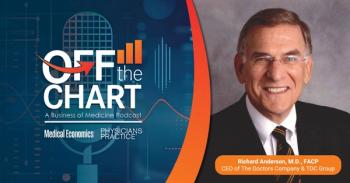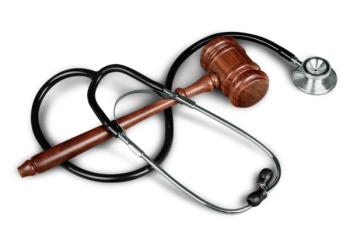
Buy-sell agreements are vital asset protection for medical partnerships
Any medical practice with multiple owners must have a funded buy-sell agreement in place to protect the partners and their families from the death or exit of a partner.
Any medical practice with multiple owners must have a funded buy-sell agreement in place to protect the partners and their families from the death or exit of a partner. We look at what should be covered in this essential legal document and what happens when it isn’t complete.
A “buy-sell agreement” is most simply defined as an agreement between all the owners of a practice as to how (or if) the business will continue after the death or exit of a partner and how or if they or their family will be compensated when such an event occurs. The death of a partner is the most obvious and commonly addressed issue, but it is neither the only issue partners face nor is it the most likely.
The disability of a partner is nine times more likely than death before the age of 65. In addition, the disqualification of a partner due to arrest or incarceration, loss of license or certification, or commission of non-criminal act that makes them an unacceptable partner is a problem. Examples of acts by a single partner that can destroy a business overnight include recent high-profile #metoo claims and acts of overt racism that have been shared on social media with instant mob response. Negative national exposure that goes viral can make continuing with that individual impossible and in some cases even unsafe for the practice.
In one real-life case study, a physician practice owner brought on two younger doctors as minority owner partners. The senior physician assumed that he’d practice most of his life and eventually sell it to the other doctors in the future, so they rightly entered a basic buy-sell agreement that was funded with enough life insurance to pay off a partner’s family in case of the death of any one partner. Unfortunately, what actually happened was not covered.
The senior doctor became disabled and was unable to perform his specialty. The younger doctors lacked the cash to buy him out, so he was going to sell the majority of the practice to a third-party doctor in order to exit with enough cash. To not lose ownership of the practice, the younger doctors pulled all their cash together, re-mortgaged the office building they owned to pull out the equity, agreed to a five-year stream of high payments to the senior doctor, and convinced him to take less than the agreed upon value of the practice to get the deal closed. Fortunately, he did agree and was also covered by high limit “own occupation” personal disability insurance.
The buy-sell should also have included provisions for both the temporary disability of partner and a disability buy-out, which was needed here. Had they been better advised and done so, all parties would have been better off. The senior doctor would have received slightly more cash right away and the younger doctors would have been able to keep their savings and the equity in their building while avoiding the stream of burdensome payments required to keep their business.
Must know basics about your medical practice buy-sell agreement
1. The biggest mistake most doctors are making is not having any buy-sell agreement at all.
2. A failure to have a buy-sell routinely results in threats to your income and practice including:
- Being put into business with your partner’s spouse
- Lawsuits and liquidation of otherwise sound practices
- Having to liquidate other personal assets for an emergency buy-out
- Significant expense, delay, and interference with patient care and doctor profit
3. The second biggest mistake is not having a buy-sell wide enough in coverage to include all the “Five D’s”: Death, Disability, Divorce, Departure and Disqualification.
4. If you do have an agreement make sure it is actually adequately funded with life, disability, disability buy-out, and any other insurance required and that the insurance limits are reviewed every year or two and kept adequate to meet the valuation your buy-sell specifies. 75 percent of the agreements we see are outdated, underfunded, or unfunded.
5. Review (or get) your buy-sell with counsel now, before it is a problem. Most doctors don’t know what would happen and how well they are covered against the Five D’s. The first time most doctors find out what they have is in a crisis, when an old document is finally located and found to be lacking.
Newsletter
Optimize your practice with the Physicians Practice newsletter, offering management pearls, leadership tips, and business strategies tailored for practice administrators and physicians of any specialty.






